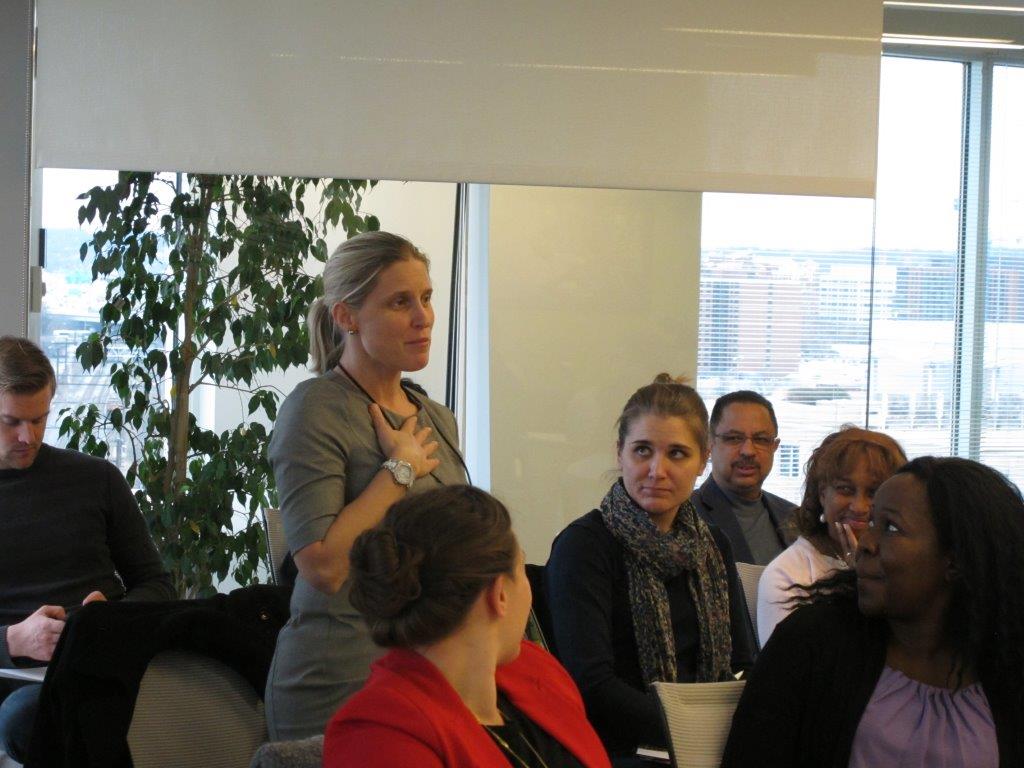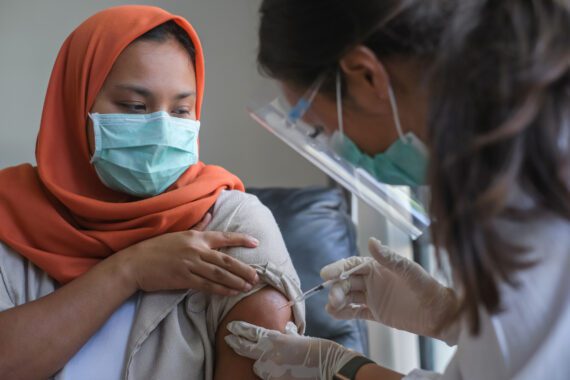By Cynthia Woodside, Bread for the World Institute
On February 4, more than 50 representatives from the anti-hunger, anti-poverty, faith-based, think tank, philanthropic, and federal governmental communities joined together at Bread for the World to discuss how to achieve the Sustainable Development Goals (SDGs) in the United States. The 17 SDGs include, for example, targets to end hunger and extreme poverty, achieve gender equality, and ensure clean water and sanitation, all by 2030.
Bread President David Beckmann shared the news that in early February, the President’s Advisory Council on Poverty, Inequality, and Opportunity, on which he sits, approved a recommendation calling on President Obama to continue his administration’s efforts to implement the SDGs in the United States. The council also pledged its assistance in engaging nongovernmental groups to help meet the goals.
Three high-ranking administration officials as well as leaders from the foundation and think tank worlds offered their thoughts. The officials, from the White House National Security Council, the White House Office of Domestic Policy, and the U.S. Agency for International Development, joined other speakers in emphasizing that these global goals reflect American values. They gave encouraging examples and concrete recommendations on how to move forward on the SDG poverty and hunger targets
The speakers also emphasized that the SDGs are interconnected and universal. Every country that endorsed the SDGs in September 2015 – all 193 nations – committed to all the goals. Countries are not free to pick and choose among the goals.
The example of work on one of the zero hunger targets — eliminating food waste — illustrates how organizations can work together to make progress on any of the SDGs. John Norris, executive director of the Sustainable Security and Peacebuilding Initiative at the Center for American Progress, offered these recommendations:
- Build on projects and programs that already exist and take them to a new level. It is not necessary to start from scratch.
- Develop public-private partnerships with great partners to garner bipartisan support. Good partners are key to success.
- Use data that already exists to create a baseline and measure progress. Do not reinvent the wheel.
- Combine actions that touch the heart and the wallet. Highlight economic impacts whenever possible.
- Expend sweat equity. It will take time and constant nudging to get key people and organizations on board.
- Remember that the SDGs’ predecessor, the Millennium Development Goals (MDGs), became powerful and successful not because of support from governments, but because of support from nongovernmental organizations. The SDGs are an opportunity for a broad cross-section of society to come together to make progress on critical issues and promote the “power of positivity.”
One place we can already see the power of positivity is in the efforts to eliminate food waste. For example, Feeding America is a founding member of the Food Waste Reduction Alliance, which, as its name says, seeks to reduce food waste – among other strategies, by increasing the amount of food donated while it is still fresh and diverting unavoidable food waste from landfills.
Feeding America is also helping to bolster the framework of the SDGs in our country through its own organizational goals, including achieving nutritious food for all and making progress toward economic security for all by 2025.
Beckmann also commended the U.S. faith community – 100 leaders from every major faith tradition in the nation – for its September commitment (particularly the downloads at this link) to pray and work to end hunger in the United States and worldwide by 2030 and to help achieve a shift in U.S. national priorities by 2017. Adding to the positivity, the Council on Foundations is encouraging U.S. foundations to use the SDGs as a framework to inform and coordinate their domestic grants, and so far, five cities and one state have committed to achieving the SDGs in their own jurisdictions.
Following a lively and thoughtful discussion, Bread invited participants to form a working group to build collective U.S. action on the SDGs. The response from this field of committed, caring, and knowledgeable professionals has been nothing but positive.
Cynthia Woodside is a senior domestic policy analyst at Bread for the World Institute.



